In fact, an embroidery machine is an investment whether you are a novice or an expert. Taking good care of your unit is essential, whether you use it every day or every once in a while. It mainly consists of oiling, brushing, and proper handling.
It is one of the most effective ways to save time and effort while choosing from a wide range of styles, colors, designs, and various sizes. The machines are also easy to use because they have user-friendly guides that explain the functionality of the moving arms, grip paddles, motor commands, and modes and threading layouts.
Embroidery machines are actually costly, so it is important to maintain the embroidery machines to help them last longer.
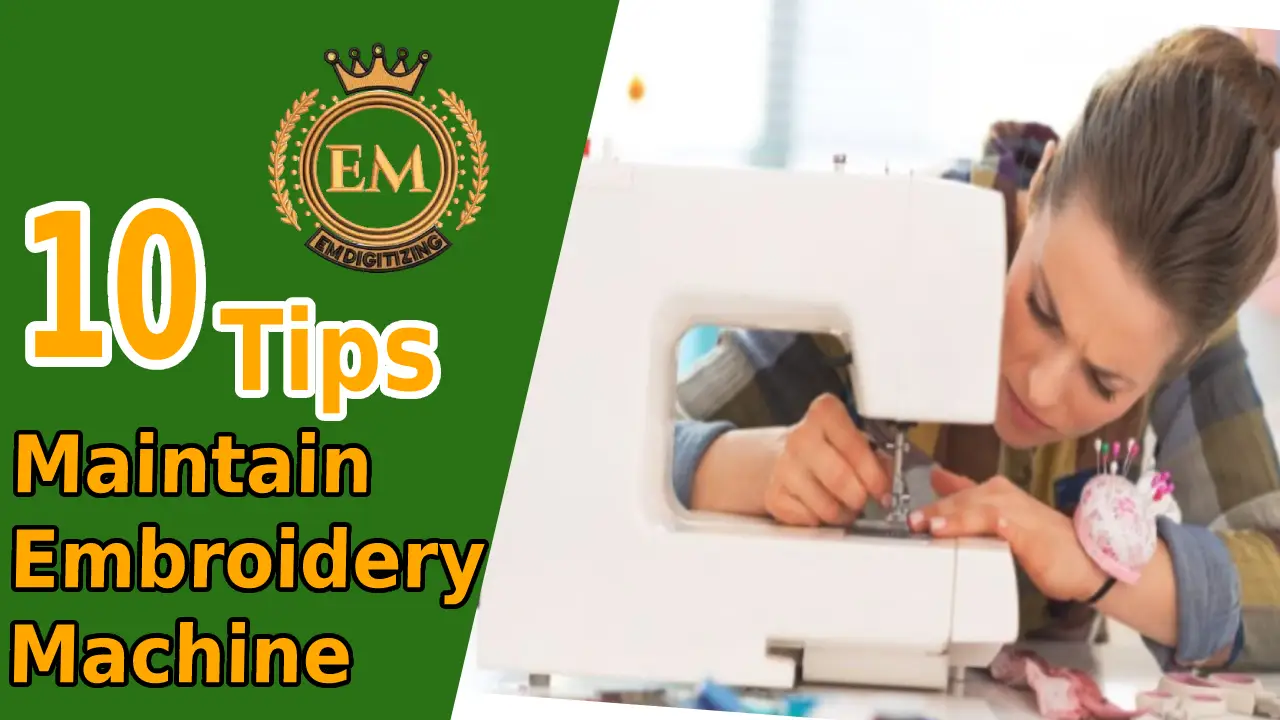
Embroidery Digitizing Services
After the introduction of machine embroidery, the popularity and use of these devices increased considerably as it is more convenient than traditional needlework. Care and maintenance of embroidery machines are essential for their proper functioning and durability. There are some important tips to consider for maintain the embroidery machine.
1. Cover The Embroidery Machine
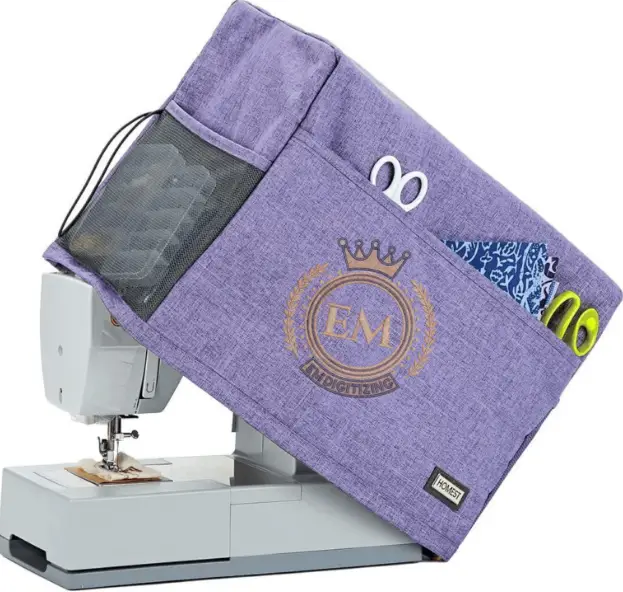
Remember to turn off the embroidery machine when not in use until you begin cleaning and maintenance. It is important to maintain and maintain the embroidery machine from dust. As soon as you finish your embroidery, remember to clean the lint design before actually covering it.
Using a dust shield, you can protect your embroidery machine or place it in a hard box. If you keep your embroidery machine covered, it will be easier to remove and collect dust. As it will help you to maintain the embroidery machines.
2. Use The Appropriate Thread
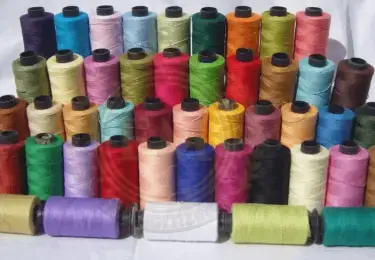
It would be advisable to use a suitable thread. If you think that buying cheap and low-quality yarn will save you money, you are making a huge mistake. During the sewing period, it will cause you to deal with different problems. So you must have a sewing machine maintenance manual that helps the embroidery machines work efficiently.
Your tool holder case will be easily damaged by a substandard thread. A poor quality thread will cause you many problems anytime, even if you are taking other necessary steps to maintain the embroidery machine.
3. Cover The Thread
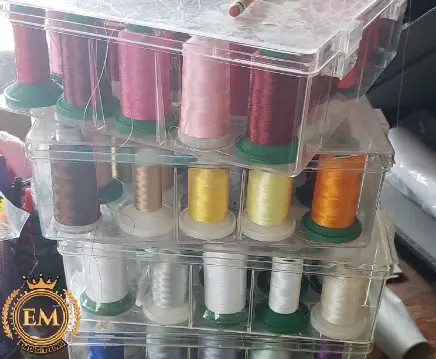
When you leave your machine embroidery thread on a shelf or thread rack, it can collect a lot of dust. Then, when you put that thread through your embroidery machine, it can throw a lot of extra debris into the machine.
Dust, lint, and bits of thread can ruin your tension and the machine won’t sew as well. Therefore, by storing your thread in a storage bin, you may be able to prevent embroidery machine maintenance problems.
4. Keep The Needle Sharp
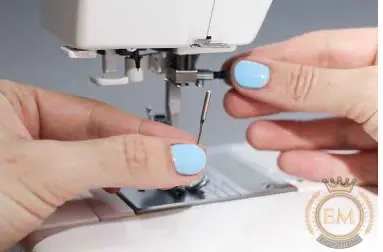
Tired needles do not produce the best quality stitches and damage the fabric. This is definitely not what you want! When the tool is for its own purposes, it is recommended to change the needles every 4 hours and every 2 hours for industrial embroidery machine use.
Be careful to use needles suitable for embroidery machines as well. The fabric should decide what type of needle to use. It can ensure a high sewing consistency and healthy fabric. Normal needles are commonly used for synthetic materials, and precision needles are used for woven fabrics to maintain the embroidery machine.
5. Disconnect The Power Supply From The Machine After Use
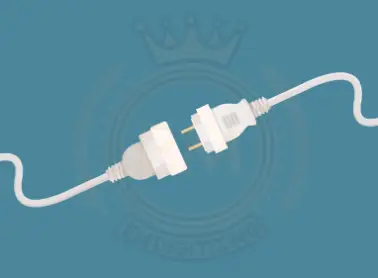
To maintain the embroidery machine, there is a basic step to keep in mind after using the embroidery machine. Since it is free, be sure to disconnect the machine’s power supply while there are immense risks of power failure that could damage your machine.
Disconnecting the power supply from the machine will keep it safe and also save electricity. For a computerized embroidery machine, it is more appropriate to keep in mind the time interval of the sewing process so that when all the work is done, you can disconnect the power supply.
6. Avoid Adhesive Spray
Spray adhesive is great until it’s all gone! Have you ever seen this picture of how dirty and dirty my embroidery hoop is before I clean it? If it looks like my hoop – imagine what it looks like inside my embroidery machine. Clogged inside an embroidery machine will not perform well.
I definitely try to avoid spray adhesives and use a sticky back stabilizer whenever possible. However, in some cases, I have no choice but to use it – like when I glue a piece of stabilizer cut to the inside of the fabric. I try to spray it in a sink (although it clogged my sink) so it’s best to use it outside.
7. Have The Embroidery Machine Serviced Regularly
I know it’s hard to take your embroidery machine apart for a few days, but annual or bi-annual servicing (depending on how often you use it) can help keep it in tip-top shape.
Think of it like a visit to the dentist’s doctor. After college, I went a few years without going to the dentist. The big mistake, I ended up with a root canal and a crown. The lesson I learned was that preventive maintenance facilitates longevity, a bit of wisdom that I apply to my teeth as well as my embroidery machine.
8. Be Gentle With Your Machine And Its Accessories
I find that I can be a bit aggressive with my machine when I’m working fast. But, when you push a little too hard, you can easily break the hoop and even the parts of your machine.
My friend, Ellie, has a graveyard of broken embroidery machine hoops which causes her to be a bit more aggressive during her projects. So, take it slow, easy, and gentle with your embroidery machine, and it will last a lot longer.
9. Wipe Down Your Machine After Use
After a bit of use, my embroidery machine can become covered in bits of thread, dust, and lint. Rubbing a nearly dry cloth over the machine to remove some of this debris will prevent it from getting into your embroidery machine and will keep it running smoothly as a result.
10. Oil Your Equipment Regularly
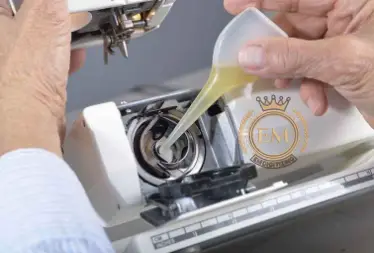
To prolong the life of the embroidery machine components, and to keep the machine working properly, oil the machine before use. A warning message may appear on the touchscreen display when too little oil has been added to the race.
The more use your sewing machine gets, the more likely it is to get greasy. Just make sure your machine doesn’t run on oil because excess oil will mix the gears with dirt and dust and gun them up. A lighter oil that can be used as an additive to sewing machine oil is white mineral oil. Use it regularly for better care and to maintain the embroidery machine.
Steps That Could Help To Oil Your Embroidery Machine
- Turn off the embroidery machine.
- To separate the bobbin casing, open the hook cover.
- Turn the hand crank (about 50 degrees) to adjust the hook to an area that will be oiled quickly.
- On the hook one or two drops of oil.
- Place the bobbin further into the hook after oiling, then close the hook seal.
- Always listen to the machine.
Adaptation of the machine is still necessary to maintain the embroidery machine. You should be able to understand what he has to say even after investing cash. To save it from multiple accidents, you need to understand every sound the machine makes.
Stitching is a great interaction. Only if you are listening and knowing that maintenance and upkeep of embroidery machines is the basic task for better use. In this operation, there are no significant efforts or problems. Just follow the instructions above, and you may find that embroidery machines are relatively easy to maintain.
Conclusion
To maintain the embroidery machine for years, you must know the techniques of embroidery machine support. In the sewing machine maintenance manual, you can see how to use the embroidery machine and how to care for and maintain the embroidery machine. You can easily maintain an embroidery machine if you keep in mind the basics and essentials related to maintenance and better use of the machine.
Always keep your embroidery machine well-oiled. All dust should be removed from exposed parts at least once every week, and important parts of the machine should be oiled. Use good quality sewing machine oil. Always remove lint deposits, dust, and bits of thread before oiling any part of the machine.
At a minimum, with average use, sewing and embroidery machines should be serviced every two or three years. Your warranty specifies how often you must have your machine serviced by a qualified technician.
National and international standards make regular machine maintenance a legal requirement. Without maintenance, equipment malfunctions can go undetected and lead to injury or worse, death. Regular equipment maintenance will highlight any faults in the system and allow for repairs.
Most sewing machine repair shops require a minimum of 48 hours to service your sewing machine, but this varies greatly from company to company. If your sewing machine needs parts replaced, you may have to wait longer because sewing machine repair shops don’t always have the parts your machine needs.
Most importantly, take your time and be careful. And remember, you’ll want to clean your machine after every big project, or after about 8 hours of solid sewing.
